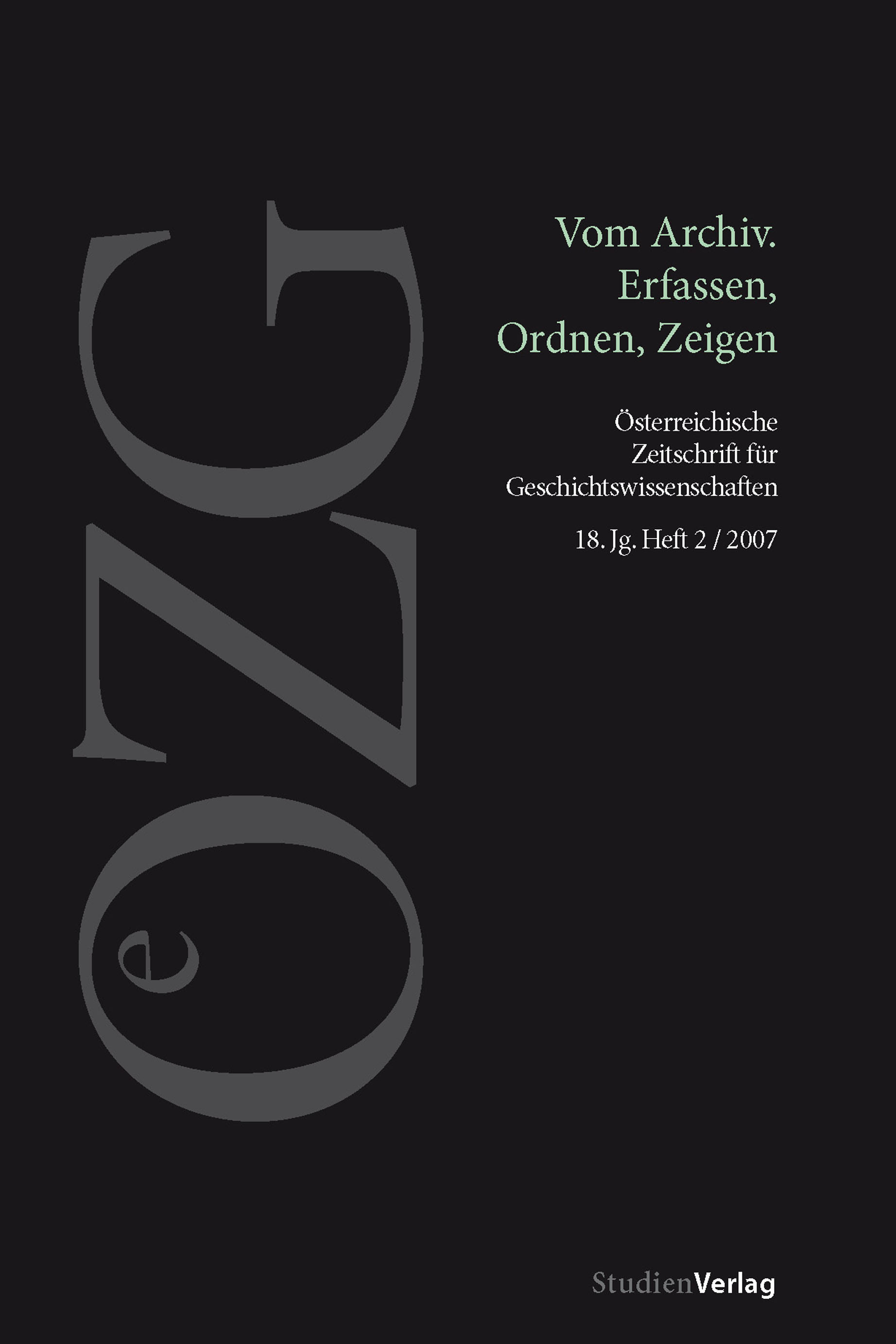Archive der Macht und die Erfassung des Singulären im Zeitalter der Demokratie
DOI:
https://doi.org/10.25365/oezg-2007-18-2-4Abstract
»Police power«, as Michel Foucault states, »must bear ›over everything‹«, not just the whole territory of a state, but everything that happens. The archive in the age of the modern sciences of man relies on small techniques of notation, of registration, of constituting files, of arranging facts in columns and tables and solves the problem of the entry of the individual into the field of knowledge. These ›ignoble archives‹ (Foucault) that make each individual a ›case‹ must not be confounded with the juridico-political archive of the ›archontes‹ who ruled over the city-state in the name of the law and whose government therefore depended on a legal deposit. The essay then discusses Walter Benjamin’s thesis that claims a ›ghostly‹ character of the modern police techniques of control and surveillance. Although Benjamin is right in focussing on the way modern power transforms the economy of visibility he is wrong in describing this power regime as a relict of the absolutist order, where the sovereign was not only the one who laid down the law, but also the privileged subject that could ›legitimately‹ break it. The usage of the infamous »lettres de cachet« in the age of the French absolutist regime demonstrates that the ›private‹ will of the monarch manifests itself in the name of the people who draw on him for their purposes; even the ›revolutionary‹ constitution of the ›general will‹ of the people as it is theorized by Rousseau relies heavily on a certain ›police power‹ that collects all the information about a population and its ›physico-political‹ status necessary to decide whether such a population is eligible for legislation.


